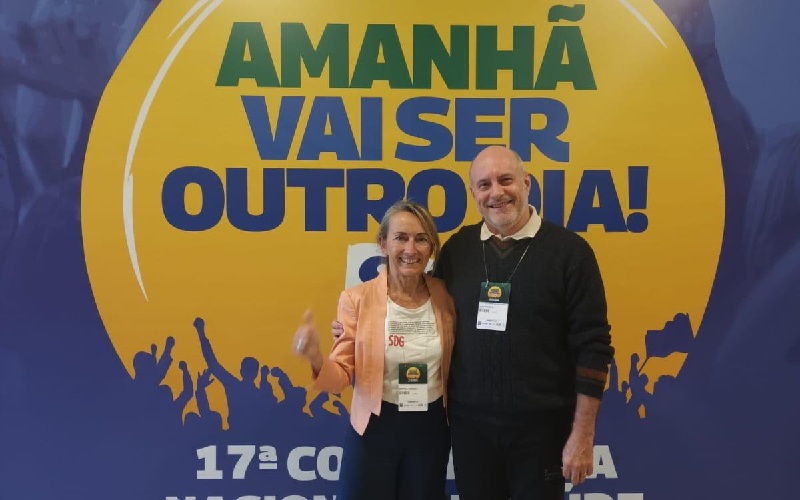
Why Health is Public: Insights from the 17th National Health Conference in Brazil
News
Jul 11, 2023
The 17th National Health Conference takes place in Brasilia from July 2–5. The Executive Director of the WFPHA, Prof. Bettina Borisch, takes part in this event.
The Conference gathers 6,000 participants and is one of the country’s most important on public health. The main theme of the Conference is “Defend the Single Health System (SUS), Life and Democracy – Tomorrow Will be Another Day”. To understand, the SUS is the Brazilian health care system that is public and offers Universal Health Coverage to all Brazilians.
The Conference is organized by the National Health Council (CNS) and the Brazilian Ministry of Health. Health Councils exist at the municipal, state, and federal levels. Delegates to these councils are patients, academics, health professionals, and minority groups. They are elected to represent the needs of the population concerning “their” health care system. This is a democratic representation that links citizens, users, to their health care system. Over four days, panel discussions, debates, and working groups are held to come to final resolutions. Prof. Borisch points out that “this is a great and sometimes difficult way for citizens to have real participation and ownership in their health care system. There is a strong will in the audience to defend the SUS. It seemed to me that the will was even stronger now that there was a change in government away from the previous right-wing, neoliberal president. It was also felt that the intimate link that exists between a healthy life for all and democracy was understood.”
Prof. Borisch also points out that “such a process is not without difficulties, but health has to be a public affair, an affair of all. Everywhere we have to find ways to render health public, it is the finest task of public health professionals. Health and disease are very individual, and so we will have to embrace the diversity of demands of groups, minorities, and subgroups without, at the same time, guaranteeing the right to health to all.”
“The Conference was a showcase of all these aspects. A vibrant and multicolored crowd that, with all their voices and wishes, transmitted the feeling that health in Brazil is a public affair. We could all learn from Brazil as to how render health an active part of our democracies,” she mentions. Or to cite Health Minister Nísia Trindade Lima, who speaks at the Conference: “One of the first acts of the Ministry of Health was a meeting with the CNS to bring back social participation”.
The Conference takes place every four years. It is an important space for dialogue between government and society for the construction of public health policies.
